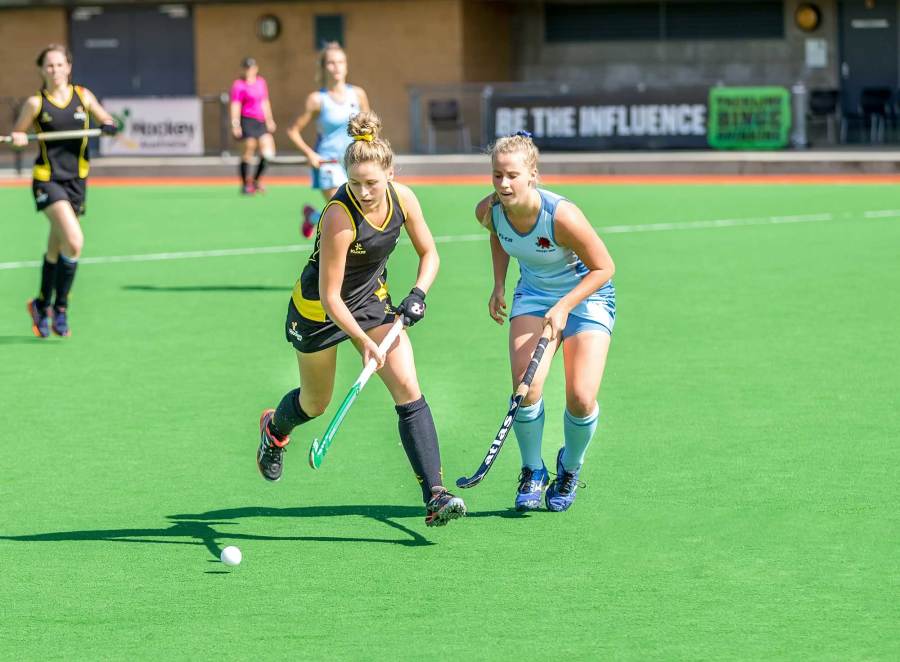Access the latest legal news, information and insights impacting the sport and leisure industry in May including outcomes from the 2023-24 Federal Budget, the latest in data and privacy laws, and the implications of the crackdown on greenwashing.
Sport, leisure and the 2023-24 Federal Budget
The 2023-24 Federal Budget was delivered on 9 May 2023, introducing a host of measures affecting the sport and leisure industry. This included $1.1 billion to support health protection, preventive health and sport.
The Australian Government has prioritised preventative health due to the overall economic benefits including saving on healthcare costs. Preventative health has important links to the sport and leisure industry and associated social and health benefits. In fact, it is estimated that, for every dollar spent on preventative health, there is an estimated saving of $14.30 in healthcare and other costs as a direct result of disease prevention related to obesity and being overweight, physical inactivity, smoking, alcohol and other drug use.
Key initiatives in the 2023-24 Federal Budget
Further explore relevant key initiatives from the 2023-24 Federal Budget below.
- The government will spend $39.8 million over seven years to support major sporting events, sport diplomacy and sport and physical activity in Australia. $16.3 million worth of funding over six years will be dedicated to support the Confederation of Australian Sport to host the World Masters Games 2029 in Perth, subject to a successful bid.
- Women's sport had a particular focus. $2.1 million has been earmarked over two years for advancing the place of women and girls in sports in line with broader human rights objectives, and for a talent and development program that will increase the number of female coaches, officials and administrators from grassroots through to the elite level.
- $8.3 million for the extension of the Local Sporting Champions program, which supports young Australians to participate in state, national and international sporting competitions.
- The development of a new national sport plan and review of the Australian Sports Commission Act 1989 to ensure a strategic approach to major sporting events. This includes $1.1 million to implement the Major Sporting Events Legacy Framework to ensure major international sporting events deliver social, economic, and sporting benefits to Australians.
- $3.3 million to support Surf Life Saving Australia's vocational education and training support for Australia's surf lifesaving volunteers.
- $3.8 million for the Australian Sports Foundation to enhance its information technology network to address emerging cyber security risks.
For more information, see this summary on health protection, preventive health and sport; and Budget Paper No. 2: Budget Measures for a more detailed breakdown of the Budget.
Sports data and privacy laws
The first week of May signified the Office of the Australian Information Commissioner's (OAIC) Privacy Awareness Week - a timely reminder to organisations about the importance of understanding privacy obligations and taking steps to protect personal information. This year's theme "back to basics" is aimed at making privacy-related knowledge and practices more accessible and practical for businesses and serves as a reminder that good privacy practice rests on solid foundations.
Privacy has never been more relevant in the sport and leisure industry. Debate has sparked in the UK regarding who owns and controls data generated from professional sport. UK privacy law is governed by the General Data Protection Regulation (GDPR), which shares many parallels with Australia's own federal privacy legislation, the Privacy Act 1988 (Cth). The use and accessibility of data in the sport and leisure industry has a whole host of applications and ramifications in areas ranging from commercial arrangements, member protection, gambling and betting, player trading, market research, advertising and more.
In addition to determining who owns and controls the data, it is equally important to adequately protect the data. The Australian Cyber Security Centre (ACSC) reported 76,000 incidents of cybercrime in FY21-22, up 13% from the previous financial year. The 2023-24 Australian Budget reflects the growing concern regarding data breaches and privacy malpractice. $101.6 million has been promised in the Budget over five years to lift the nation’s cyber security, and $45.2m over four years for stronger privacy protection and enforcement, primarily allocated to the OAIC, to drive stronger focus on oversight of data governance.
Data breaches and poor privacy practices have far-reaching reputational and legal consequences. Accordingly, privacy should be a key area of focus for any business operating in the sport and leisure industry. To prepare your organisation for incoming privacy reform, improve privacy compliance and maintain privacy hygiene, Lander & Rogers has launched a privacy-by-design tool known as "PrivacyComply" to assist with identifying and addressing any existing vulnerabilities. It is designed for anyone (non-lawyers and lawyers) to use and provides practical actions that can be taken to reduce privacy-related risks.
For privacy and data-related concerns, or if you would like more information, please contact our Sport & Leisure team.
Greenwashing crackdown - impact on the sport and leisure industry
In 2023, the Australian Competition and Consumer Commission (ACCC) and Australian Securities and Investments Commission (ASIC) are cracking down on 'greenwashing'. Greenwashing is the act of misleadingly or deceptively publicising information or engaging in other public relations to persuade the public that an organisation's products, aims and policies are environmentally friendly. The ACCC highlights that "consumers are now, more than ever, making purchasing decisions on environmental grounds".
Australia's regulators are consciously targeting deceptive practices where businesses are being untruthful in their sustainability image and actions, with ASIC going so far as to name greenwashing as one of its 2023 enforcement priorities. ASIC, in early May, revealed that it had issued an infringement notice to Future Super Investment Services Pty Ltd, alleging it engaged in greenwashing practices by overstating the positive environmental impact of its superfund.
What does this mean for organisations in the sports and leisure industry?
Organisations in the sports and leisure industry should be aware of ASIC's regulatory action aimed at preventing greenwashing in the context of its existing and prospective sponsorship arrangements. As a key example, a recent report highlights major car brands allegedly spending $4.5 billion on sports advertising to help greenwash their image despite lobbying against climate action.
Organisations in the sports and leisure industry should:
- make inquiries about the conduct of current and potential sponsors' sustainability and environmental, social and governance (ESG) practices and be alert to any risk of deceptive practices;
- ensure any marketing materials or sustainable practices they engage in are accurate and do not mislead or deceive consumers; and
- consider their own ESG practices, plan for the future and communicate with their sport community and partners.
If you have questions regarding how these policy developments impact your organisation, please reach out to our Sport & Leisure team for a more in-depth discussion.
All information on this site is of a general nature only and is not intended to be relied upon as, nor to be a substitute for, specific legal professional advice. No responsibility for the loss occasioned to any person acting on or refraining from action as a result of any material published can be accepted. Lander & Rogers is furthermore committed to providing legal advice and content that is factual, true, practical and understandable. Learn more about our editorial policy.
 Client portal
Client portal













